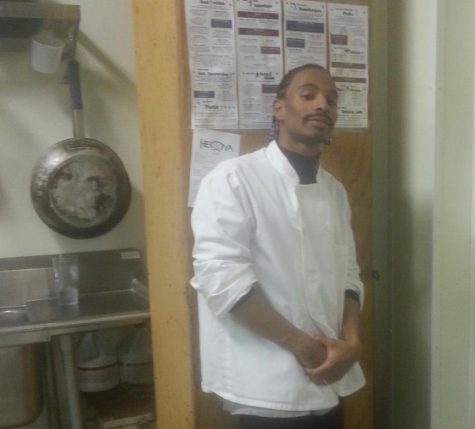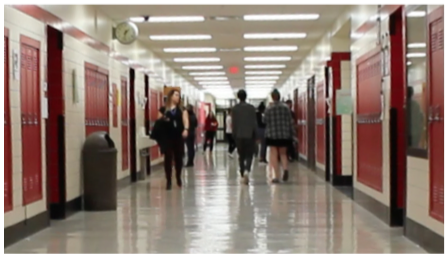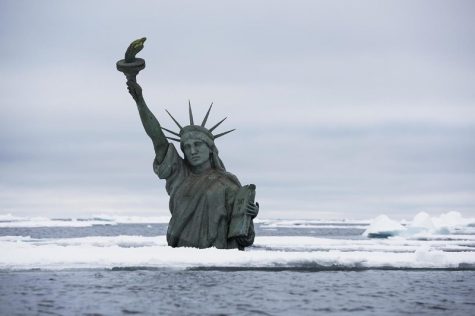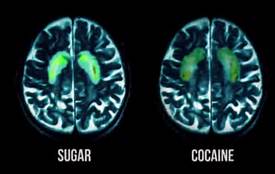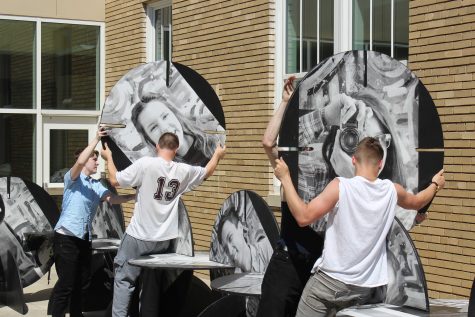Travel Ban: Trump’s Invisible Wall – Executive order impacts Lincoln High families
By Bhagya Pushkaran (News) –
Chaos erupted at the JFK airport on January 28th, 2017, as well as other airports across the nation: travelers detained for hours, visas revoked, and people sent back to where they came from. All of this disorder was caused by few pages of paper signed by President Donald Trump in the form of an executive order barring entry to the United States for people from seven countries identified as having terrorists: Syria, Iran, Iraq, Libya, Sudan, Yemen, and Somalia.
Families were separated from th eir loved ones, and many refugees lost their hope at a new life. These words defined an invisible wall for immigrants and travelers, and they affected students and staff here at Lincoln High.
eir loved ones, and many refugees lost their hope at a new life. These words defined an invisible wall for immigrants and travelers, and they affected students and staff here at Lincoln High.
Senior Fawaz Hasan, whose family came here from Dohuk, Iraq as refugees, has been directly affected by the ban.
“I have my cousin in Iraq, and he’s been coming here for four or five years, and he had no problems [before],” Hasan said. “He wanted to return to the U.S. a couple of weeks ago, but he was not permitted to come into the U.S.”
“There are many people in the travel ban that are good, and some that are bad, but there are no relations between them. There will always be bad people and good people,” Hasan said.
The travel ban, officially titled, “Protecting the Nation from Foreign Terrorist Entry into the United States,” restricted entry into the United States for those who come from countries the Trump Administration says “engage in acts of bigotry or hatred (including “honor” killings, other forms of violence against women, or the persecution of those who practice religions different from their own) or those who would oppress Americans of any race, gender, or sexual orientation.”
The ban soon caused uproar for targeting a specific group of people. It is seen by many as a ban against Muslims since it targets countries with majority Muslim populations, and has caused eruptions of protests and marches throughout the country including nearly 2,000 people in Omaha and Lincoln.
Lincoln High custodian Satta Kprazen comes from Liberia (which is not part of the ban) and she got her citizenship back in 2012. But with the travel ban, Kprazen feels anxiety about traveling.
“I’m afraid, because I won’t know if I go to an airport and they ask me to give them my passport, maybe they’ll take it away from me. That is what is making me afraid. I don’t want to travel,” Kprazen said. She has even cancelled recent plans to see family abroad for fear of encountering problems getting back into the U.S. “I was planning to travel to Australia in May, to visit my younger sister, but because of the travel ban, the one Trump put, I just stopped everything for now.”
The travel ban is seen by some as a method of protecting the country from any potential terrorist threats plotted on U.S. soil. Senior Keller Rader sees the travel ban as a secure way to check the people who are coming into the U.S.
“The ban is making it a more secure entry, and it’s more thorough with looking into the background of people who are immigrating into the country,” Rader said. Furthermore, Rader believes that the reduced influx of immigrants leaves the possibility of a more thorough background check on them. “It’s a good thing that less people are coming in, because we are able to look into their background more, and it makes things more safe,” he said.
Opponents of the ban point out that there is already a rigorous process in place to determine eligibility for refugees and immigrants, which makes the ban unnecessary.
Freshman Wail Labrouchi is from Morocco (a country also not on the list of banned countries), so the ban doesn’t affect him directly, yet he sympathizes with the struggles of the travel ban for others.
“There are so many refugees here that don’t want to go back,” Labrouchi said. “They come here, and they feel free, and look only at the future. Now, when they come here, they think they have to go back, and they don’t want to look at the past maybe because someone got killed.”
ELL Advocate Amy Stotts sees a change in the ELL community as a result of Trump’s efforts.
“It has created an environment of insecurity and added anxiety for our students who are sincerely concerned about their families,” Stotts said. Many of them have come from places where they have already experienced so much violence, she added. “And many times they are at the mercy and dependence of somebody else to have their immigration issues supported, and because of that they don’t know what’s happening to their families.”
Countries such as Saudi Arabia, the UAE, and Egypt, are ones from which terrorists have actually come and attacked us, but they are not included in the travel ban. The Washington Post and others have noted that Trump has business relations in some of these countries.
Critics of the ban have noted that fifteen of the 9/11 terrorists were from Saudi Arabia, two were from the UAE, one was from Lebanon, and one was from Egypt, yet none of these countries is included in the ban. The San Bernardino shootings terrorist was an American-born U.S. citizen and was of Pakistani descent, the Boston marathon bombers were from Chechnya and Kyrgyzstan, and the Pulse nightclub shooter was of Afghan descent. Yet none of these countries made the list.
What’s even more surprising is that the country with the largest number of terrorists who have carried out successful attacks inside the U.S., is the U.S. itself. The Charleston Church shooting was carried out by a White male from South Carolina. The Oklahoma City bombing was committed by 2 White males from New York and Michigan. The Olympic Park bomber was a White male from Florida.
For now, the future of the ban is up in the air even after federal court rulings temporarily halted its enforcement, because the Trump administration has promised to continue pushing for it.


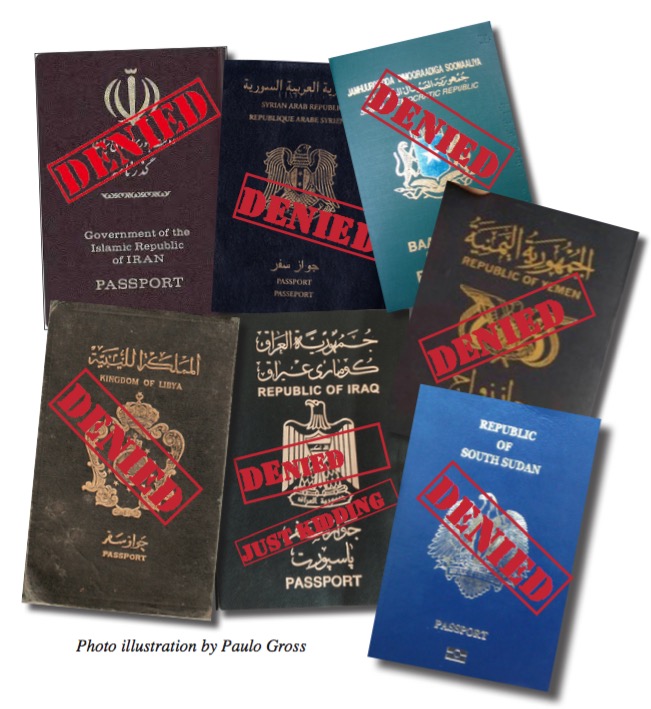
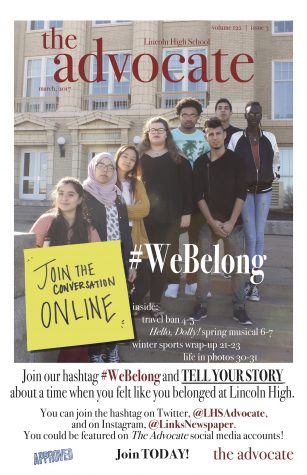
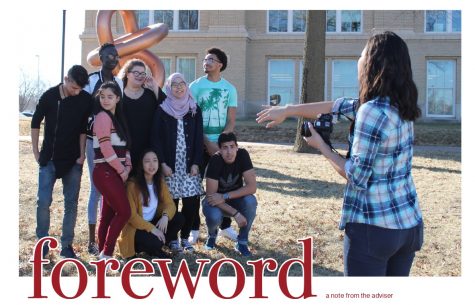
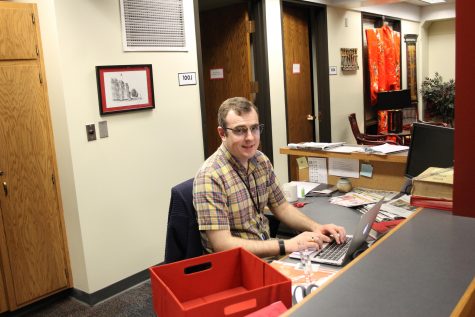
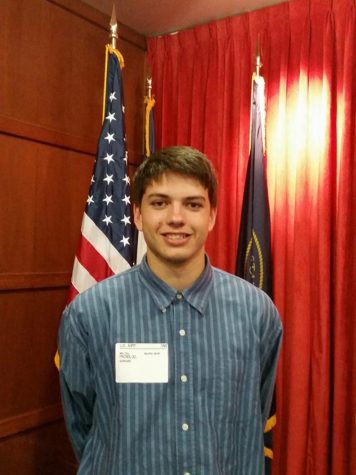
![Counselor Van Nguyen and Naji Smoqy (12) review scholarship applications. You have until the last day of school [May 24th] to apply for the Learn To Dream Scholarship. Photo by Ahmed Naser](https://lhsadvocate.com/wp-content/uploads/2017/04/LearnToDream-475x277.jpg)
